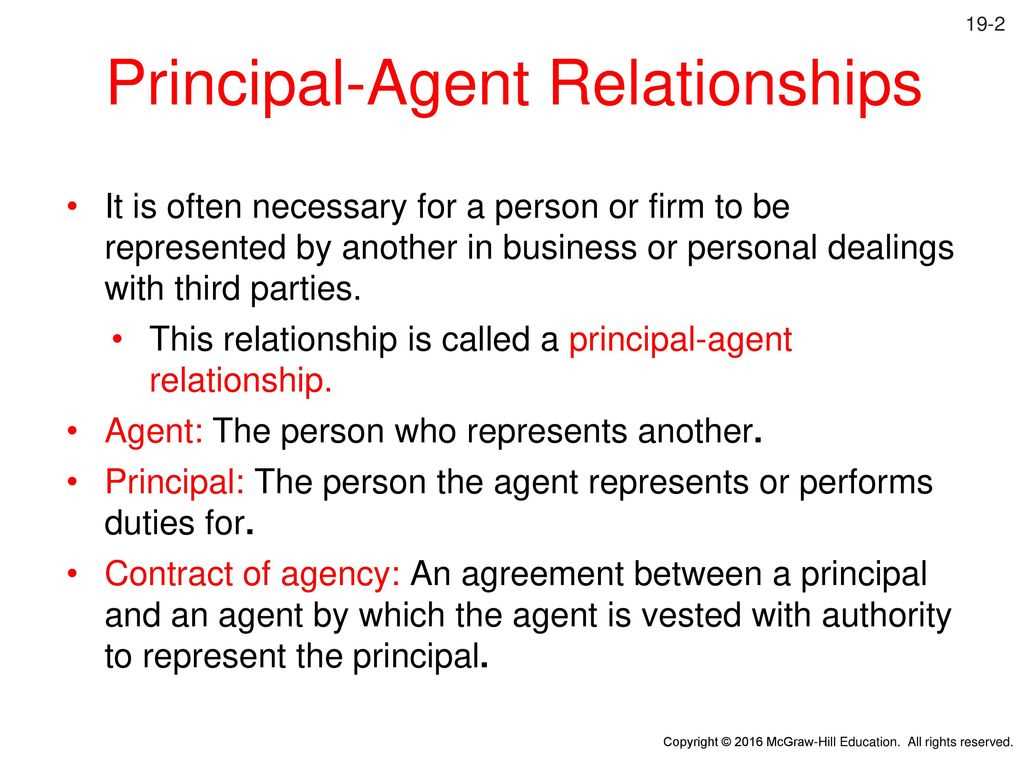Exploring the Laws & Regulations
In the principal-agent relationship, there are various laws and regulations that govern the actions and responsibilities of both parties. These laws and regulations are put in place to ensure transparency, accountability, and fairness in the relationship.
One of the key laws that govern the principal-agent relationship is the Agency Law. This law outlines the rights and obligations of both the principal and the agent. It establishes the legal framework within which the relationship operates and provides guidelines for the actions and decisions of both parties.
Another important regulation is the Fiduciary Duty. This duty requires the agent to act in the best interests of the principal and to avoid any conflicts of interest. The agent is obligated to make decisions and take actions that are in line with the principal’s goals and objectives, even if they may not align with their own personal interests.
It is important for both principals and agents to be aware of these laws and regulations and to comply with them. Failure to do so can result in legal consequences and damage to the relationship. Therefore, it is recommended that both parties seek legal advice and stay updated on any changes or updates to the laws and regulations that govern their specific industry or profession.
Key Aspects of the Principal-Agent Relationship
1. Fiduciary Duty

One of the most important aspects of the principal-agent relationship is the fiduciary duty that the agent owes to the principal. A fiduciary duty is a legal obligation to act in the best interests of the principal and to avoid any conflicts of interest. The agent must prioritize the principal’s interests above their own and make decisions that are in line with the principal’s goals and objectives.
2. Authority and Power
The principal-agent relationship is characterized by the delegation of authority and power from the principal to the agent. The principal grants the agent the authority to make decisions and take actions on their behalf. However, the extent of this authority is usually defined in a contract or agreement between the principal and the agent. The agent must exercise their power within the boundaries set by the principal and act within the scope of their delegated authority.
3. Accountability and Reporting
Another important aspect of the principal-agent relationship is accountability. The agent is accountable to the principal for their actions and decisions. They are required to provide regular reports and updates to the principal, keeping them informed about the progress and outcomes of their activities. This accountability ensures transparency and allows the principal to monitor the agent’s performance and ensure that their interests are being properly represented.
4. Compensation and Incentives
In the principal-agent relationship, the agent is typically compensated for their services. The compensation can be in the form of a salary, commission, or other financial incentives. The principal may also provide additional incentives to motivate the agent to act in their best interests. These compensation and incentive structures help align the interests of the principal and the agent, ensuring that the agent is motivated to work towards achieving the principal’s goals.
5. Termination and Renewal

Emily Bibb simplifies finance through bestselling books and articles, bridging complex concepts for everyday understanding. Engaging audiences via social media, she shares insights for financial success. Active in seminars and philanthropy, Bibb aims to create a more financially informed society, driven by her passion for empowering others.
